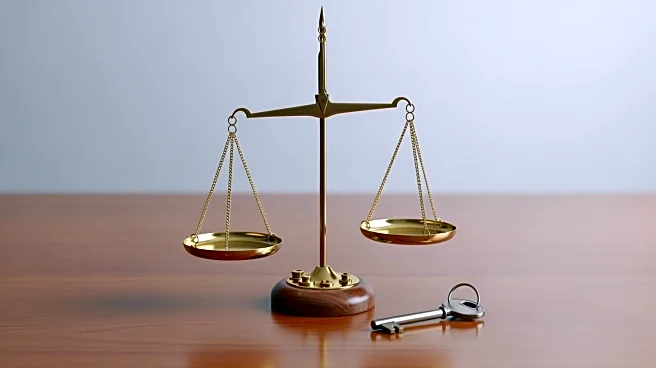What's Happening?
Mahmoud Khalil, a pro-Palestinian activist and green card holder, has accused the Trump administration of using immigration courts to control the process of his detention and potential removal from the United
States. Khalil's attorneys recently appeared before the Third Circuit Court of Appeals to challenge the legality of his detention, which was initially blocked by a lower court. Khalil was arrested by ICE agents in New York City in March, allegedly due to a revoked student visa, despite being a lawful permanent resident. He was detained in Louisiana until a federal judge ordered his release in June. Khalil argues that the government is using immigration courts as 'kangaroo courts' to bypass federal scrutiny, as they attempt to re-detain him. The case has raised questions about jurisdiction and the role of immigration courts in handling constitutional claims.
Why It's Important?
This case highlights significant issues regarding the use of immigration courts in the U.S. and their potential role in circumventing federal judicial oversight. The outcome could set a precedent for how similar cases are handled, particularly those involving constitutional rights and immigration status. Khalil's situation underscores the tension between national security concerns and individual rights, especially for activists and those expressing dissenting views. The case also reflects broader debates about the Trump administration's immigration policies and their impact on civil liberties. If Khalil's arguments are upheld, it could lead to increased scrutiny of immigration court processes and potentially limit the government's ability to use these courts to expedite removals.
What's Next?
The Third Circuit Court of Appeals is expected to make a decision on whether the lower court has jurisdiction over Khalil's case. This decision will influence whether Khalil's case can proceed in federal court or if it will be relegated to immigration court proceedings in Louisiana. The outcome could prompt reactions from civil rights organizations and potentially influence future immigration policy and legal strategies. Khalil's legal team is likely to continue advocating for his rights, potentially leading to further legal challenges if the court rules against him.









